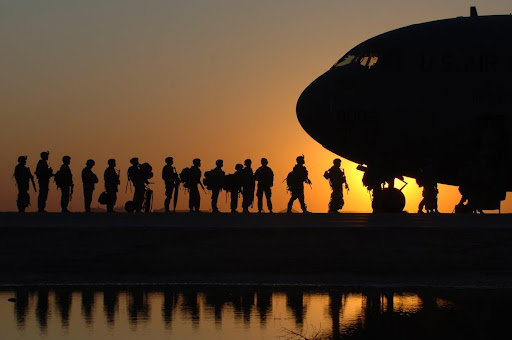While United States military veterans dedicate their profession and live to their country, it’s easier to consider them an entirely different population. Besides being multifaceted, those from the armed forces have a distinct culture, including certain customs, ethos, values, behavioral patterns, and many more.
These factors make the veterans an exclusive group of people. Despite being the same age as their civilian counterparts, their training and work experience make them poles apart. Therefore, their challenges during duty or after retirement are generally unique. Although this applies to several other issues, one exclusive problem is their health-related challenges. For instance, a National Health Statistics report revealed that the prevalence of multiple chronic conditions in veterans was higher than in non-veterans for both genders above 25 years. And instead of getting the proper care and treating the underlying issue, most veterans get deployed again, worsening their ailments.
Specific military branches, an individual’s ethnicity and family medical history, and varying wartime eras can also impact veterans’ health challenges. However, a few reasons, seven of which we discuss below, significantly contribute to making these challenges unique and distinctive for veterans.
- Hazardous exposure
Soldiers from the army, navy, or marine are constantly at risk of hazardous exposure. They continuously encounter chemicals like contaminated water, occupational hazards such as asbestos, and even warfare agents that are biological or chemical. Frequent contact with these substances often develops into severe and unusual diseases that become difficult to treat and recover from.
One example is mesothelioma, which mainly affects the tissues around the lungs, abdomen, or heart. Although a rare disease, for many veterans mesothelioma poses a real threat since one of its primary causes is prolonged asbestos exposure. And since this chemical substance is abundant around military ships, equipment, and vehicles, it’s no surprise veterans acquire this cancer over time. Fortunately, if diagnosed with mesothelioma, veterans can apply for compensation to help pay for treatment and cover other medical-related costs.
- Strenuous routine
Life in the armed forces is not an easy one. Things get challenging from the beginning, from strenuous, back-breaking exercises at all hours of the day to living in close quarters with fellow soldiers. Receiving orders from superiors, getting deployed, and having unprecedented breaks where they can meet families often leaves heavy turmoil on veterans. During tours or deployments, communication with loved ones isn’t always possible; even if it is, it’s usually for a short while.
This lack of emotional connection causes mental health problems like depression, anxiety, and hopelessness among soldiers. And since a constant presence of mind is essential for survival in the military, any psychological or physical strain can cost a veteran their life.
- Dietary intake
Just like civilians need the proper nutrients to grow and survive, so do veterans. In fact, those in the armed forces require even higher amounts of certain food groups to help develop muscle mass and build stamina. However, training camps cannot always provide these foods due to the inaccessibility or nonavailability of specific resources. For example, while most veterans fulfill the requirements for carbohydrates, proteins, and fats, their vitamin and mineral uptake is typically deficient.
However, insufficiency of these nutrients doesn’t have an immediate effect. Perhaps after retirement or several years down the line, a veteran will become susceptible to acquiring rare and common infections every so often. A primary reason for this might be a weak immune system which requires substantial levels of micronutrients to function effectively and combat all pathogens it encounters.
- Trauma from combat
During combat and while on active duty, soldiers meet several incidents that can negatively impact their physical and mental health. Studies show that combat-exposure veterans are more at risk of developing mood disorders, psychological distress, and stress-related disorders. This trauma can also alter brain volume, connectivity, and function in severe cases, paving the way for mental conditions that are generally rare.
Traumatic brain injuries, or TBIs, are some of the more common types of distress veterans face. Often TBI indicators such as headache, fatigue, or dizziness can be misdiagnosed as general lethargy symptoms, but with combat veterans, this is a more probable diagnosis.
- Restless sleep
Proper, uninterrupted 6 to 8 hours of sleep is essential for every individual’s well-being. However, many soldiers rarely meet this requirement due to grueling training hours. Even on leave, they often get restless sleep because their minds constantly replay events or incidents they faced during combat. The body cannot recuperate fully for the next day without the appropriate rest. Even the immune system works best when the body’s relaxing since it allows immune cells to reinforce their defense mechanisms and fight diseases.
- Substance abuse
A study showed that more than one in ten soldiers had a substance abuse disorder, a slightly higher statistic than the general population. Since deployments and active combats are incredibly stressful, some veterans quickly fall into destructive substance use habits to cope with the pressure and subsequent stress. Heavy drinking, illicit drug use, and chain smoking are common behaviors they engage in. Although the fear of dishonorable discharge keeps many soldiers from practicing substance abuse, they have nothing stopping them once they retire.
These destructive behaviors can severely deteriorate a veteran’s physical and mental well-being. For example, long-term alcohol consumption can damage the liver beyond recovery, while heavy smoking can develop lung or oral cancers.
- Homelessness
Many veterans in the United States face homelessness and its disastrous effects. Civilians who face homelessness suffer from depression, substance abuse, mental illnesses, and so do veterans. However, additional military-related burdens plague these soldiers, such as PTSD, injuries, transitioning to civilian life, etc. For many veterans, the fear of having military skills that might not be transferable in the civilian environment is a constant trepidation that forces them into unemployment.
Homeless veterans are also more vulnerable and prone to acquiring diseases from living in harsh and unsheltered conditions. A National Coalition for Homeless Veterans study revealed that 70% of homeless veterans suffer from substance disorders, 51% have disabilities, and 50% have severe mental illness. These statistics are incredibly alarming and a leading cause of why health issues are so challenging for military personnel.
Conclusion
Since veterans grow up in an entirely different environment than their non-veteran counterparts, it makes sense that every aspect of their lives is unique. Even the health challenges veterans face are distinctive from civilians, and there are several reasons, like those mentioned above.
Fortunately, thanks to recent, there’s growing awareness regarding this issue. With time, better availability of facilities and resources will help reduce the prevalence of these challenges and ensure outcomes for veteran care significantly improves.








